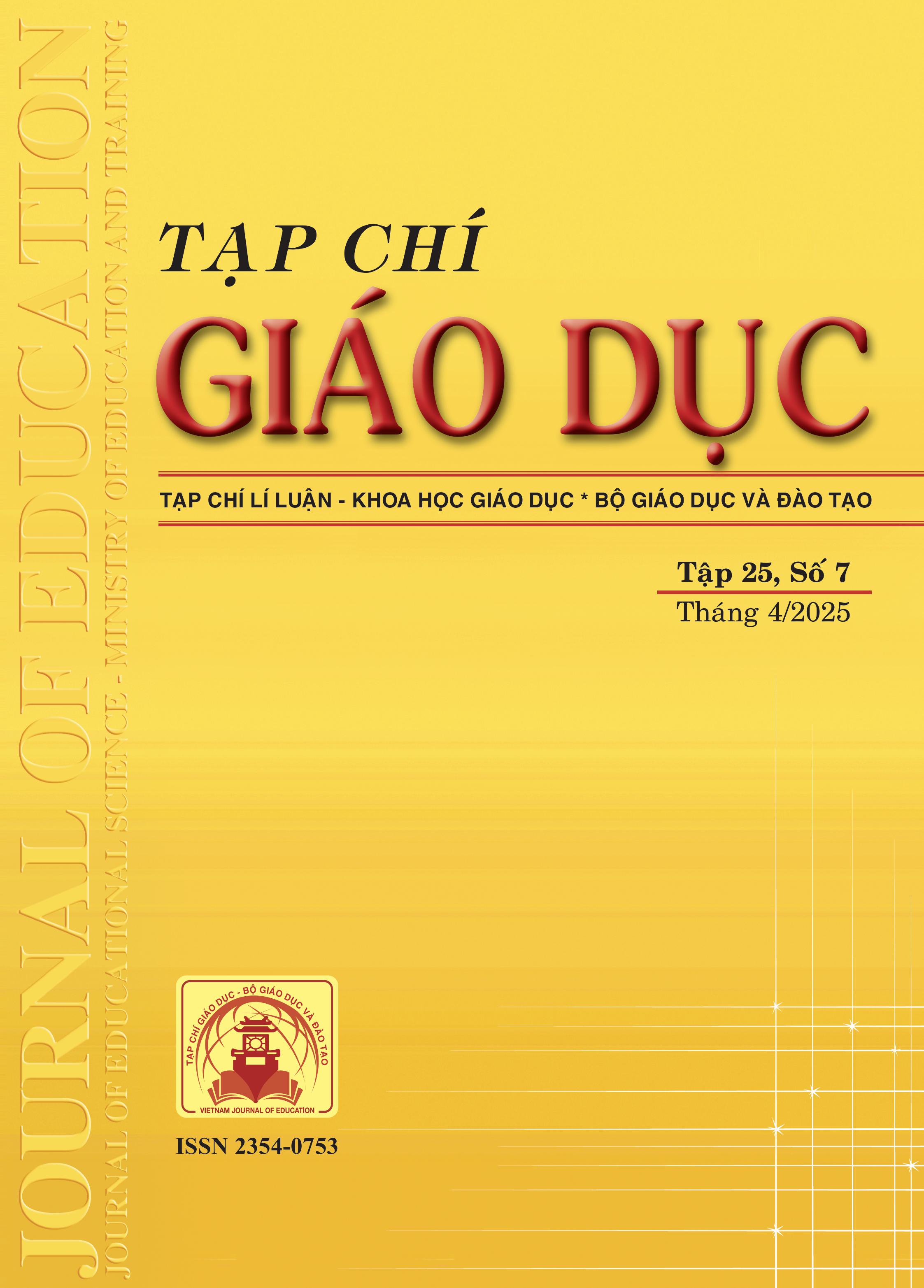Vận dụng Mô hình PERMA để tìm hiểu hạnh phúc của giảng viên tiếng Anh: nghiên cứu trường hợp tại Trường Đại học Cần Thơ
Tóm tắt
Teacher wellbeing has a significant impact on the quality of teaching and the learning outcomes of students. Although there have been many studies investigating the wellbeing of teachers in the field of education, there are still few studies exploring the wellbeing of university lecturers in the field of English language teaching in Vietnam. Employing a qualitative approach, specifically phenomenological analysis, this study investigated English as a foreign language (EFL) lecturers’ wellbeing in their teaching environment. Based on the PERMA theoretical framework, this study collected data through semi-structured interviews with 18 EFL lecturers at Can Tho University. The results from this study demonstrated the multifaceted nature of lecturers’ well-being, highlighting the interplay of workplace relationships, positive emotions, engagement, meaning in work, and accomplishments. Educational institutions play a pivotal role in creating an environment that supports these elements, thereby enhancing the overall well-being of lecturers.
Tài liệu tham khảo
Babic, S., Mercer, S., Mairitsch, A., Gruber, J., & Hempkin, K. (2022). Language teacher wellbeing in the workplace: Balancing needs. Theory and Practice of Second Language Acquisition, 8(1), 11-34. https://doi.org/10.31261/TAPSLA.11514
Budzińska, K. (2023). Language teacher wellbeing in the private school context: A case study. Theory and Practice of Second Language Acquisition, 2(9), 1-30. https://doi.org/10.31261/TAPSLA.12576
Cilesiz, S. (2011). A phenomenological approach to experiences with technology: Current state, promise, and future directions for research. Educational Technology Research and Development, 59(4), 487-510. https://doi.org/10.1007/s11423-010-9173-2
Creswell, J. W. (2013). Qualitative inquiry and research design: Choosing among five approaches (4th ed.). Sage Publications.
Demir, B. (2024). Exploring English language instructors’ perspectives and practices on teacher well-being. International Journal of Applied Positive Psychology (2024), 1-20. https://doi.org/10.1007/s41042-024-00178-x
Dreer, B. (2021). Teachers’ well-being and job satisfaction: The important role of positive emotions in the workplace. Educational Studies, 50(1), 61-77. https://doi.org/10.1080/03055698.2021.1940872
Granziera, H., Collie, R., & Martin, A. (2021). Understanding teacher wellbeing through job demands-resources theory. In C. F. Mansfield (Ed.), Cultivating teacher resilience: International approaches, applications and impact (pp. 229-244). Springer.
Jin, J., Mercer, S., Babic, S., & Mairitsch, A. (2021). Understanding the ecology of foreign language teacher wellbeing. In K. Budzińska & O. Majchrzak (Eds.), Positive psychology in second and foreign language education (pp. 19-38).
Li, Z. (2021). Teacher well-being in EFL/ESL classrooms. Frontiers in Psychology, 12, 1-4. https://doi.org/10.3389/fpsyg.2021.732412
Masuda, A. M., Ebersole, M. M., & Barrett, D. (2013). A qualitative inquiry: Teachers’ attitudes and willingness to engage in professional development experiences at different career stages. The Delta Kappa Gamma Bulletin, 79(2), 6-14.
Mercer, S. (2021). An agenda for well-being in ELT: An ecological perspective. ELT Journal, 75(1), 14-21. https://doi.org/10.1093/elt/ccaa062
Mercer, S. (2023). The wellbeing of language teachers in the private sector: An ecological perspective. Language Teaching Research, 27(5), 1054-1077. https://doi.org/10.1177/13621688209735
Moustakas, C. E. (1994). Phenomenological research methods. SAGE Publications. https://doi.org/10.4135/9781412995658
Nazari, M., & Karimpour, S. (2024). Exploring Iranian EAP teachers’ well-being: An activity theory perspective. Asian-Pacific Journal of Second and Foreign Language Education, 9(1), 9-27. https://doi.org/10.1186/s40862‑023‑00249‑7
Radu, C. (2023). Fostering a positive workplace culture: Impacts on performance and agility. In A. A. V. Boas (Ed.), Human resource management - An update. IntechOpen.
Ryan, R. M., & Deci, E. L. (2001). On happiness and human potentials: A review of research on hedonic and eudaimonic well-being. Annual Review of Psychology, 52(1), 141-166. https://doi.org/10.1146/annurev.psych.52.1.141
Sadeghi, K., & Pourbahram, R. (2024). Exploring factors affecting English language teacher wellbeing: Insights from positive psychology. System, 122(2024), 103-274. https://doi.org/10.1016/j.system.2024.103274
Seligman, M. E. (2011). Flourish: A visionary new understanding of happiness and well-being. William Heinemann.
Talbot, K., & Mercer, S. (2018). Exploring university ESL/EFL teachers’ emotional well-being and emotional regulation in the United States, Japan and Austria. Chinese Journal of Applied Linguistics, 41(4), 410-432. https://doi.org/10.1515/cjal-2018-0031
Yüksel, P., & Yıldırım, S. (2015). Theoretical frameworks, methods, and procedures for conducting phenomenological studies in educational settings. Turkish Online Journal of Qualitative Inquiry, 6(1), 1-20. https://doi.org/10.17569/tojqi.59813
Zhou, S., Slemp, G. R., & Vella-Brodrick, D. A. (2024). Factors associated with teacher wellbeing: A meta-analysis. Educational Psychology Review(2024), 36-63. https://doi.org/10.1007/s10648-024-09886-x
Tải xuống
Đã Xuất bản
Cách trích dẫn
Số
Chuyên mục
Giấy phép

Tác phẩm này được cấp phép theo Ghi nhận tác giả của Creative Commons Giấy phép quốc tế 4.0 .












